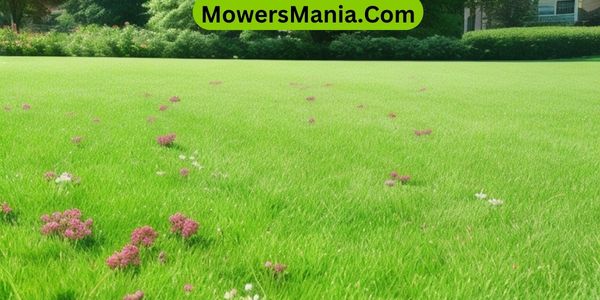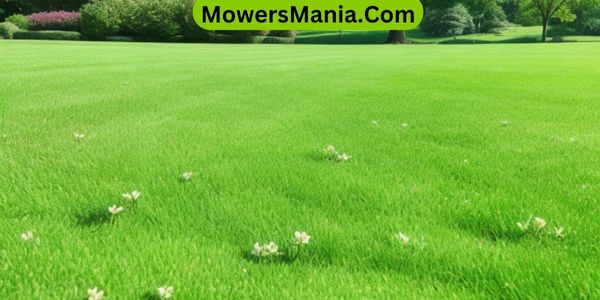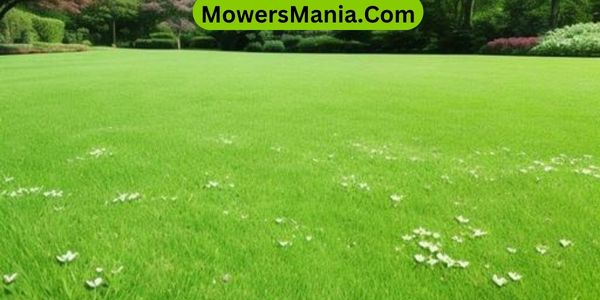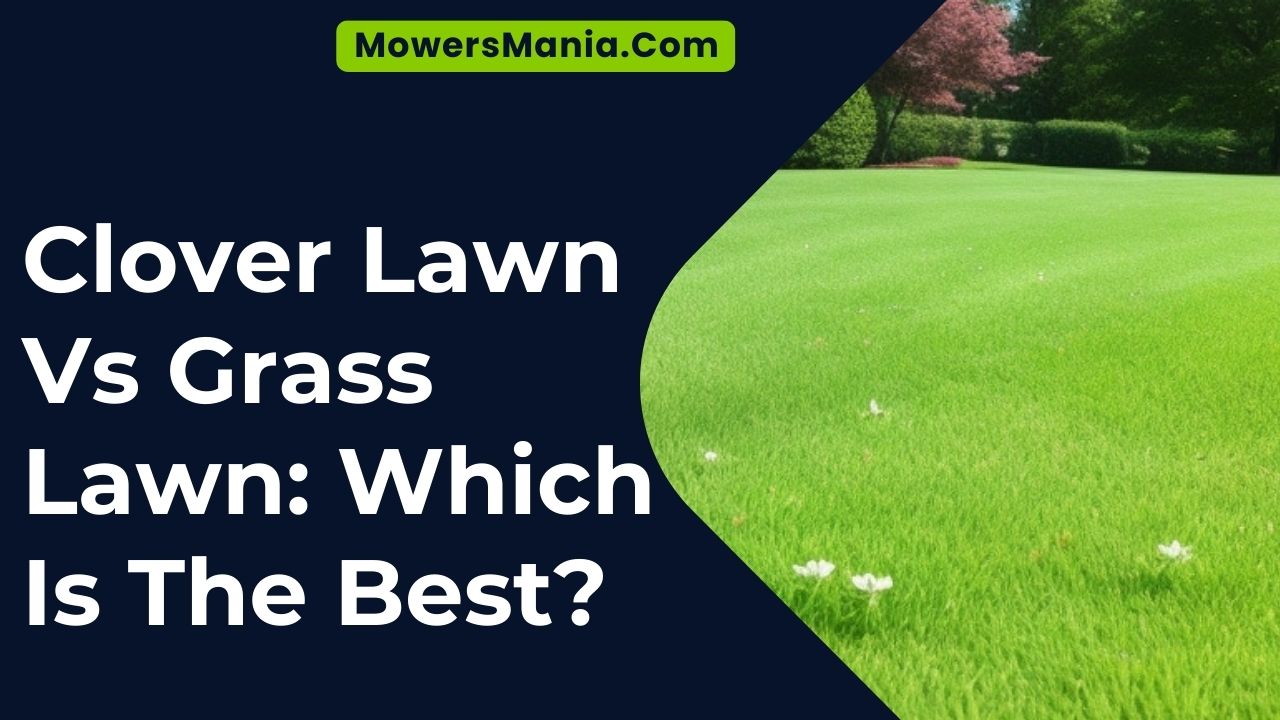Are you tired of constantly mowing and maintaining your grass lawn? Curious about the alternative of a clover lawn? In this article, we will compare the advantages and disadvantages of clover lawns and grass lawns.
Discover which option is best suited for your needs as we explore factors such as maintenance, environmental impact, aesthetics, durability, cost, climate suitability, and even the health benefits associated with clover lawns.

Make an informed decision about your lawn with this comprehensive comparison.
Maintenance Considerations
When comparing the maintenance considerations of a clover lawn and a grass lawn, you’ll find that the former requires significantly less mowing and watering.
Clover lawns have the advantage of being naturally drought-tolerant, meaning they can withstand long periods without water.
Unlike grass, which needs frequent watering to stay green and healthy, clover can flourish with minimal irrigation. This not only saves you time and effort but also conserves water, making it an environmentally friendly choice.
Another aspect to consider is mowing. Grass lawns typically require regular mowing to keep them at an acceptable height. However, clover lawns grow at a slower rate and stay shorter naturally.
This means you won’t have to mow as frequently, giving you more free time to enjoy your yard rather than maintaining it. Additionally, clover lawns have the added benefit of being more resistant to pests and diseases, reducing the need for chemical treatments.
Environmental Impact Comparison
To assess the environmental impact of clover lawns compared to grass lawns, consider the long-term effects on soil health, water conservation, and pesticide use.
- Soil Health: Clover lawns have a positive impact on soil health. The roots of clover plants help to improve soil structure by breaking up compacted soil, allowing air, water, and nutrients to penetrate deep into the ground.
- Additionally, clover is a nitrogen-fixing plant, meaning it absorbs nitrogen from the atmosphere and releases it into the soil, enriching it with essential nutrients.
- Water Conservation: Clover lawns are known for their ability to conserve water. Unlike traditional grass lawns, clover has deep roots that can reach water deep in the soil, reducing the need for irrigation. Additionally, clover’s dense growth helps to retain moisture in the soil and reduce evaporation.
- Pesticide Use: Clover lawns require fewer pesticides compared to grass lawns. Clover is naturally resistant to many pests and diseases, reducing the need for chemical treatments. Furthermore, clover attracts beneficial insects like bees and butterflies, promoting a healthy ecosystem and reducing the need for harmful pesticides.
Aesthetics and Visual Appeal
Consider the visual appeal and aesthetics of your lawn by comparing the overall appearance and maintenance requirements of a clover lawn versus a grass lawn.
When it comes to visual appeal, both clover and grass lawns have their own unique charm. A clover lawn, with its lush green foliage and delicate white flowers, creates a natural and inviting look. It adds a touch of whimsy and elegance to your outdoor space.
On the other hand, a grass lawn offers a traditional and manicured appearance. Its uniform and well-groomed look exudes a sense of neatness and order.
In terms of maintenance requirements, clover lawns have a distinct advantage. Clover is a low-maintenance plant that requires less water, fertilizer, and mowing compared to grass lawns. It’s also more tolerant of drought and foot traffic.
This means less time and effort spent on lawn care, allowing you to enjoy your outdoor space without the constant need for maintenance.
Grass lawns, on the other hand, require regular mowing, watering, fertilizing, and weeding to maintain their appearance. This can be time-consuming and costly.
Ultimately, the choice between a clover lawn and a grass lawn depends on your personal preference and the level of maintenance you’re willing to undertake. Both options offer their own unique beauty, so consider your priorities and choose the one that best suits your needs and lifestyle.
Durability and Resilience

To determine the durability and resilience of a clover lawn versus a grass lawn, assess their ability to withstand various environmental conditions and factors.
Here are three key factors to consider:
- Drought Resistance:
Clover lawns have proven to be more drought-resistant compared to traditional grass lawns. Clover has deep root systems that enable it to access water from deeper soil layers, making it more resilient during dry periods. Grass lawns, on the other hand, tend to require more frequent watering to stay healthy and green.
- Foot Traffic Tolerance:
Grass lawns often struggle to withstand heavy foot traffic, leading to bare patches and soil compaction. Clover lawns, however, have a higher tolerance for foot traffic due to their sturdier nature. The dense foliage of clover helps protect the soil from compaction and minimizes damage caused by constant use.
- Disease and Pest Resistance:
Clover lawns have a natural ability to resist diseases and pests. The dense growth of clover helps to deter weeds and inhibits the growth of harmful organisms. Grass lawns, on the other hand, are more susceptible to diseases and pests, requiring regular applications of pesticides and herbicides to maintain their health.
Cost Analysis
For a cost-effective lawn option, consider the financial benefits of choosing either a clover lawn or a grass lawn. While both options have their advantages and disadvantages, it is important to weigh the costs before making a decision.
| Cost Factors | Clover Lawn | Grass Lawn |
|---|---|---|
| Installation | Low cost | High cost |
| Maintenance | Low cost | High cost |
| Water Usage | Low cost | High cost |
When it comes to installation, a clover lawn is the more affordable choice. Clover seeds are inexpensive and require less preparation work compared to grass. On the other hand, grass lawns typically require professional installation and can be quite costly.
In terms of maintenance, clover lawns require less care and attention. They are naturally more resistant to pests, diseases, and drought. Grass lawns, on the other hand, require regular mowing, fertilizing, and watering, which can add up in terms of time and money.
Water usage is another cost factor to consider. Clover lawns have a deep root system that helps them retain moisture, reducing the need for frequent watering. Grass lawns, however, require more water to stay healthy and green.
Ultimately, the cost analysis will depend on factors such as the size of your lawn, local climate, and personal preferences. Consider these financial aspects before deciding between a clover lawn and a grass lawn to ensure you make the most cost-effective choice.
Suitability for Different Climates
When it comes to choosing between a clover lawn and a grass lawn, considering the suitability for different climates is crucial.
Different types of grass and clover have different tolerances to temperature, humidity, and sunlight, making them more suitable for specific climates.
Understanding the climate in your area and selecting the best lawn option accordingly will help ensure a healthy and thriving lawn all year round.
Climate and Lawn Suitability
If you live in a region with a diverse climate, where temperatures and rainfall vary throughout the year, choosing the right type of lawn, whether it be a clover lawn or a grass lawn, can make a significant difference in its overall suitability for your specific climate.
Here are three factors to consider when determining which type of lawn is best for your climate:
Considering these factors can help you determine whether a clover lawn or a grass lawn is the best choice for your specific climate.
Best Lawn for Climates
Now let’s explore which type of lawn is best suited for different climates.
When it comes to choosing the best lawn for your climate, it’s important to consider factors such as temperature, rainfall, and soil conditions.
In warmer climates with high temperatures and limited rainfall, grass lawns can be challenging to maintain. However, clover lawns are known for their drought tolerance and can thrive in these conditions.
On the other hand, in cooler climates with moderate temperatures and regular rainfall, grass lawns are a popular choice. They can withstand the colder temperatures and have a higher tolerance for moisture.
Ultimately, the best lawn for your climate will depend on the specific conditions in your area, so it’s important to research and choose accordingly.
Health Benefits of Clover Lawns

Did you know that choosing a clover lawn over a grass lawn can have several health benefits?
Environmental Advantages of Clover
Maintaining a clover lawn offers numerous environmental advantages, making it the healthier choice for your outdoor space.
Here are three reasons why clover lawns are beneficial for the environment:
- Water Conservation: Clover lawns have deep roots that can access water deeper in the soil, reducing the need for frequent watering. This not only conserves water but also reduces your water bill and helps to prevent water runoff and erosion.
- Natural Fertilization: Clover is a nitrogen-fixing plant, which means it takes nitrogen from the air and converts it into a form that plants can use. This natural fertilization process eliminates the need for synthetic fertilizers, reducing chemical runoff and pollution.
- Biodiversity Support: Clover lawns provide a habitat for beneficial insects like bees and butterflies, which are essential for pollination. By choosing a clover lawn, you’re supporting biodiversity and contributing to the health of local ecosystems.
Reduced Need for Pesticides
To ensure a healthier outdoor space, embrace the health benefits of clover lawns with their reduced need for pesticides. Unlike grass lawns, clover lawns have the natural ability to repel pests and diseases, minimizing the need for harmful chemicals.
This not only benefits your health but also the environment. By reducing pesticide usage, you are contributing to the preservation of ecosystems and protecting beneficial insects like bees and butterflies.
Additionally, clover lawns require less maintenance and water, making them a more sustainable and cost-effective choice. Take a look at the table below to understand the significant advantages of clover lawns in terms of pesticide reduction:
| Advantages of Clover Lawns |
|---|
| Natural pest repellent |
| Reduced chemical usage |
| Preservation of ecosystems |
| Protection of beneficial insects |
| Less maintenance and water requirements |
Nitrogen Fixation Benefits
If you’re looking for a lawn that not only provides aesthetic appeal but also offers health benefits, consider the nitrogen fixation benefits of clover lawns.
Clover has the unique ability to fix nitrogen from the air and convert it into a usable form for plants. This process brings several advantages to your lawn and the environment:
- Natural Fertilization: Clover lawns enrich the soil by releasing nitrogen, which promotes healthy growth and reduces the need for synthetic fertilizers.
- Weed Suppression: Clover’s dense growth and nitrogen-rich soil create unfavorable conditions for weeds, minimizing the need for herbicides.
- Enhanced Soil Health: The nitrogen fixation ability of clover improves soil structure, enhances water and nutrient retention, and increases microbial activity.
Frequently Asked Questions [FAQs]
Can Clover Lawns Be Easily Mowed and Maintained Like Traditional Grass Lawns?
Yes, clover lawns can be easily mowed and maintained like traditional grass lawns. You’ll save time and money on fertilizers and watering, while enjoying the natural beauty and resilience of clover.
Do Clover Lawns Attract More Pests or Insects Compared to Grass Lawns?
Clover lawns generally attract fewer pests and insects compared to grass lawns. The dense foliage of clover discourages insects, while its flowers attract beneficial pollinators. Overall, clover lawns can be a low-maintenance and pest-resistant option for your lawn.
Are There Any Specific Environmental Benefits to Having a Grass Lawn Instead of a Clover Lawn?
Having a grass lawn instead of a clover lawn offers specific environmental benefits. It helps to control erosion, improves air quality, and supports biodiversity. So, grass lawns have their advantages over clover lawns in terms of the environment.
How Does the Overall Appearance of a Clover Lawn Differ From a Grass Lawn?
The overall appearance of a clover lawn differs from a grass lawn in that clover has smaller leaves and a lighter green color. However, it can still create a lush and attractive landscape.
Are Clover Lawns More or Less Expensive to Install and Maintain Compared to Grass Lawns?
Are clover lawns more or less expensive to install and maintain compared to grass lawns? Well, the good news is that clover lawns tend to be cheaper to install and maintain than grass lawns.
Conclusion
In conclusion, choosing between a clover lawn and a grass lawn depends on various factors such as:
- Maintenance: Clover lawns require less maintenance, as they do not need to be mowed as frequently as grass lawns. Grass lawns, on the other hand, require regular mowing to keep them looking neat and tidy.
- Environmental impact: Clover lawns are considered more environmentally friendly, as they require less water and fertilizer compared to grass lawns. Additionally, clover lawns attract beneficial insects and pollinators, contributing to biodiversity. Grass lawns, on the other hand, require more water and fertilizer to thrive.
- Aesthetics: Some people prefer the lush, green look of a well-maintained grass lawn. Others may find the delicate flowers and diverse shades of green in a clover lawn more appealing.
- Durability: Grass lawns are known for their durability and ability to withstand heavy foot traffic. Clover lawns, although hardy, may not be as resilient as grass lawns in high-traffic areas.
- Cost: Clover lawns tend to be more cost-effective, as they require less maintenance and fewer inputs like water and fertilizer. Grass lawns, on the other hand, can be more expensive to establish and maintain.
- Suitability for different climates: Grass lawns are commonly found in many different climates and can be adapted to various conditions. Clover lawns are more suitable for cooler climates, as they can struggle in hot and dry conditions.
Both options have their own advantages and disadvantages. Ultimately, it’s important to consider your specific needs and preferences when deciding which type of lawn is best for you.



